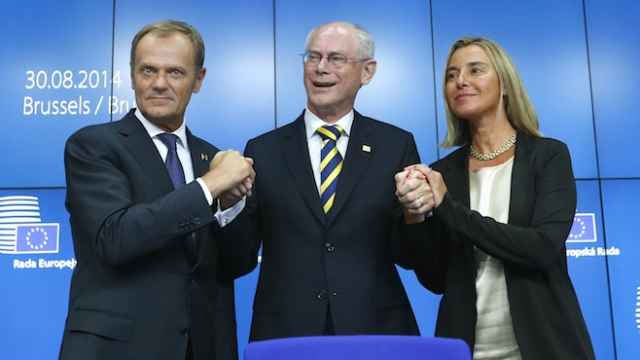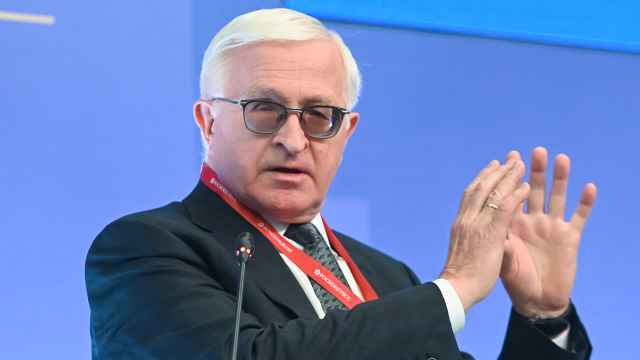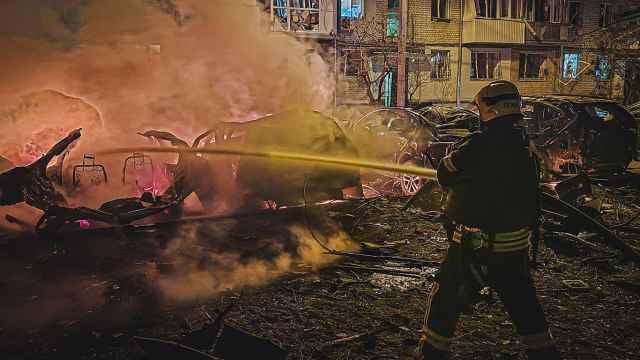BRUSSELS — The European Union is considering widening a ban to borrow or raise capital in Europe to all Russian state-owned firms from just Russian government banks and barring Russian Defense Minister Sergei Shoigu from entering the EU, EU diplomats said.
The proposals were floated during a meeting of European Union ambassadors in Brussels on Monday.
The European Commission is to prepare a final draft of new sanctions against Moscow over its alleged invasion of Ukraine by Wednesday and EU governments will make a decision on the final shape of the package by Friday.
Other measures discussed at the meeting on Monday included banning syndicated EU loans to Russian government-owned banks and institutions.
The European Commission also proposed a shortening of the minimum maturity of Russian state-owned banks' debt instruments that cannot be sold in the EU under a decision from July to 30 days from the previously agreed 90 days.
The EU would also be considering imposing a ban on buying Russian derivative instruments too.
Other ideas floated on Monday included an expansion of a export ban on goods that can have both military and civilian use to all potential Russian importers, not just companies in the defense sector as agreed by the EU sanctions package from July.
A ban on selling advanced energy technologies to Russia could be extended to include servicing agreements, diplomats said.
Russia could also stop being invited to cultural, economic and sports events.
The new EU sanctions package against Russia could be coordinated with other G7 countries — the United States, Canada and Japan.
Cutting off Russia from the SWIFT international bank transaction system was not discussed, because the measure is considered too radical.
A Message from The Moscow Times:
Dear readers,
We are facing unprecedented challenges. Russia's Prosecutor General's Office has designated The Moscow Times as an "undesirable" organization, criminalizing our work and putting our staff at risk of prosecution. This follows our earlier unjust labeling as a "foreign agent."
These actions are direct attempts to silence independent journalism in Russia. The authorities claim our work "discredits the decisions of the Russian leadership." We see things differently: we strive to provide accurate, unbiased reporting on Russia.
We, the journalists of The Moscow Times, refuse to be silenced. But to continue our work, we need your help.
Your support, no matter how small, makes a world of difference. If you can, please support us monthly starting from just $2. It's quick to set up, and every contribution makes a significant impact.
By supporting The Moscow Times, you're defending open, independent journalism in the face of repression. Thank you for standing with us.
Remind me later.






